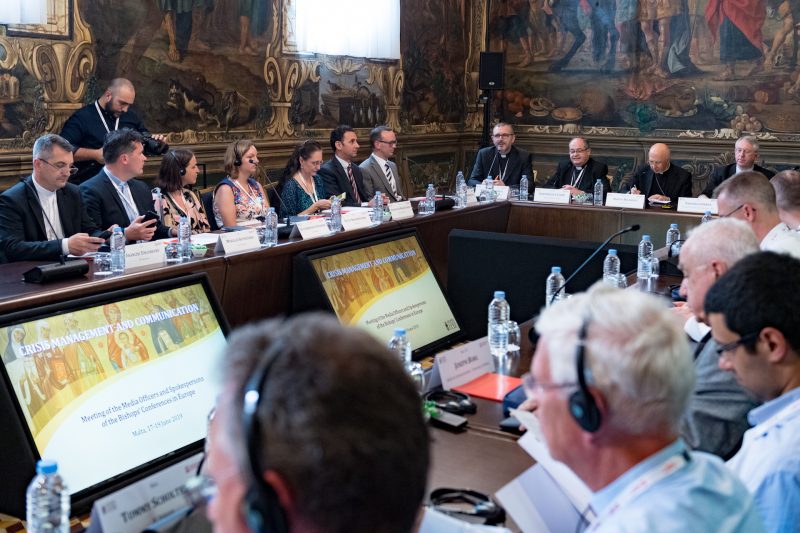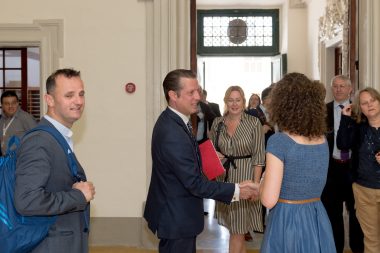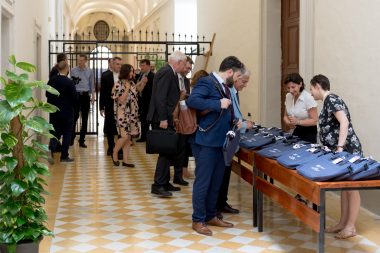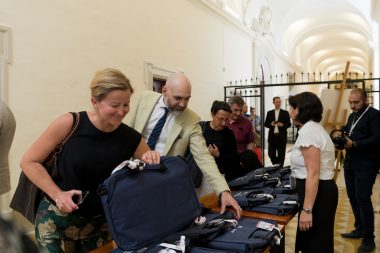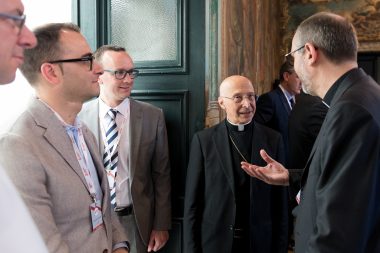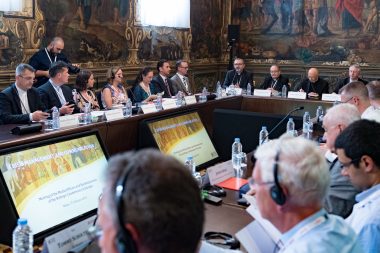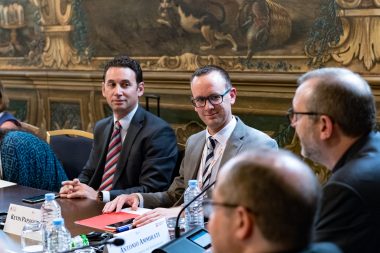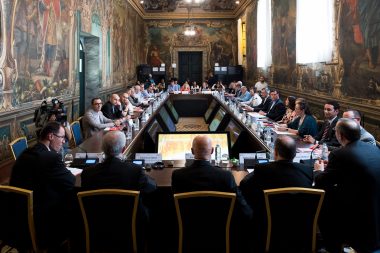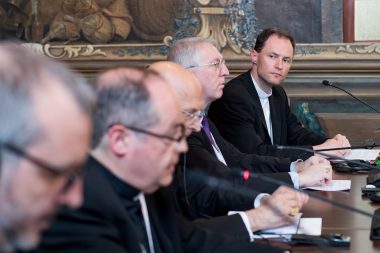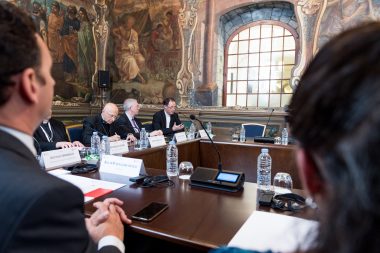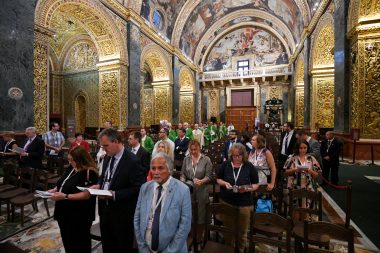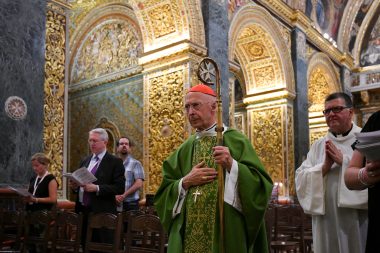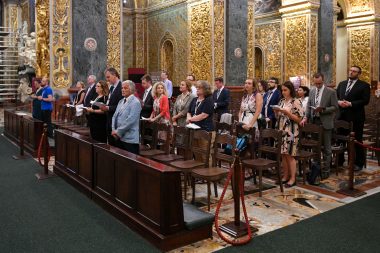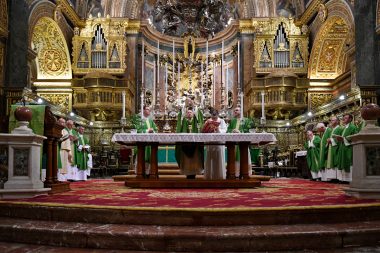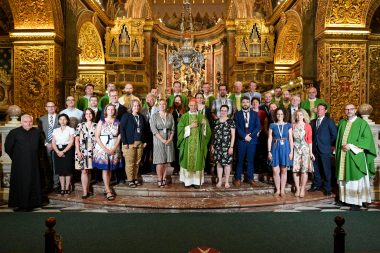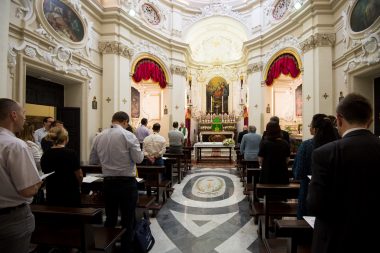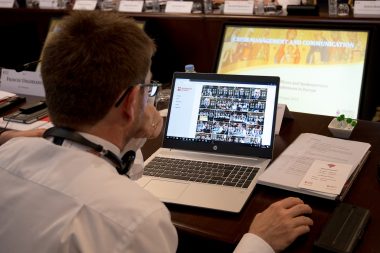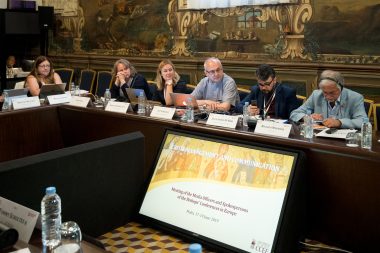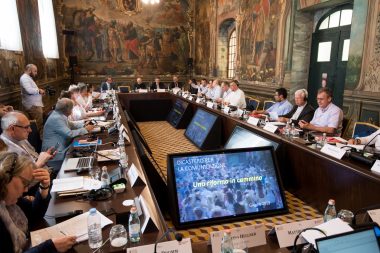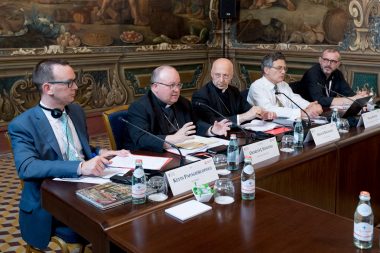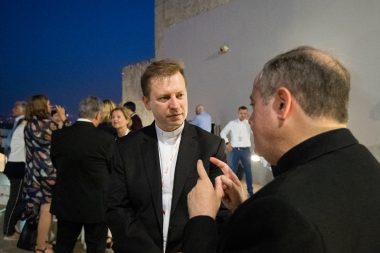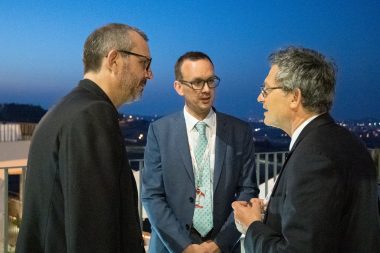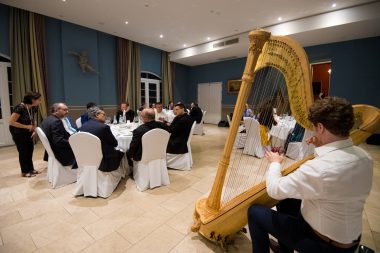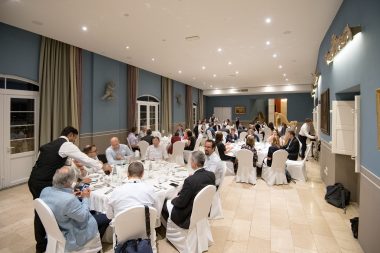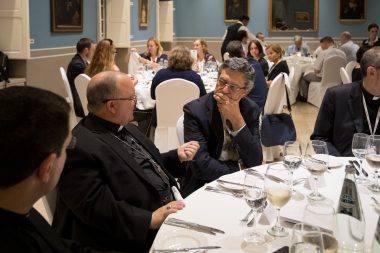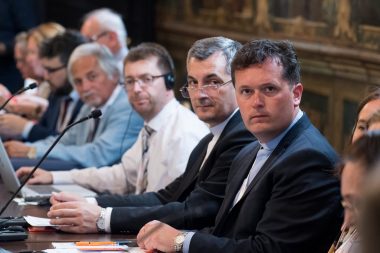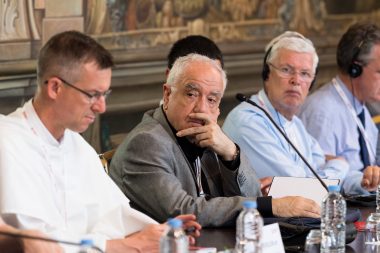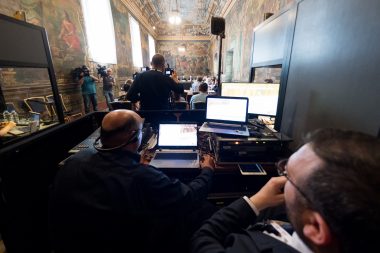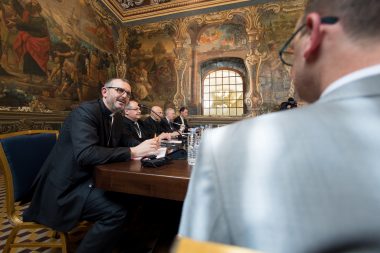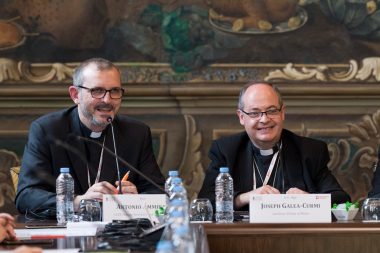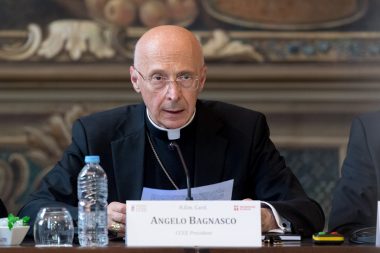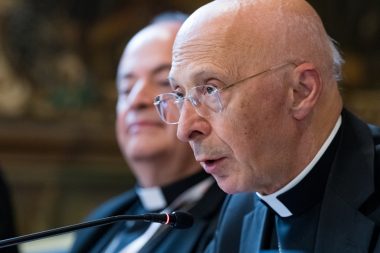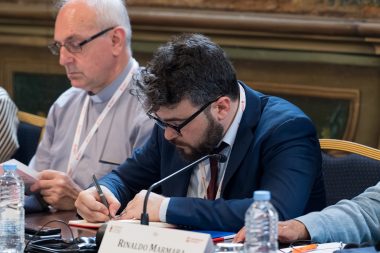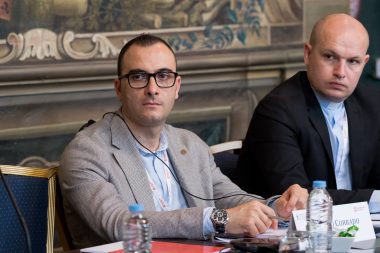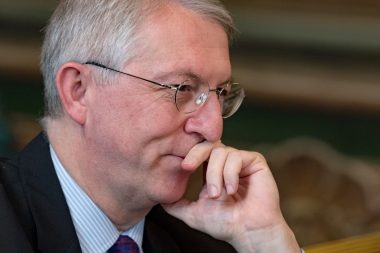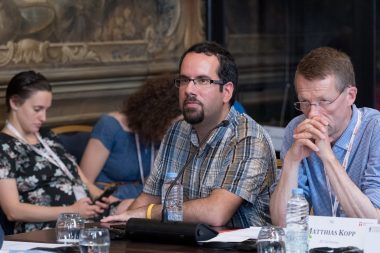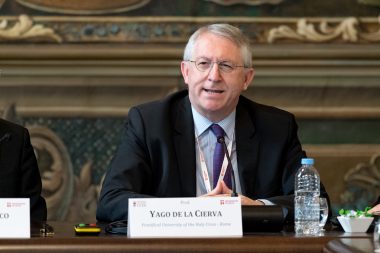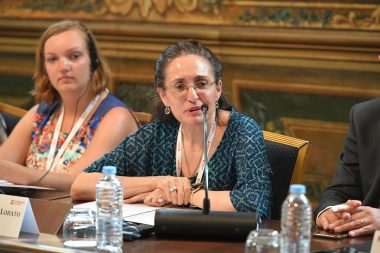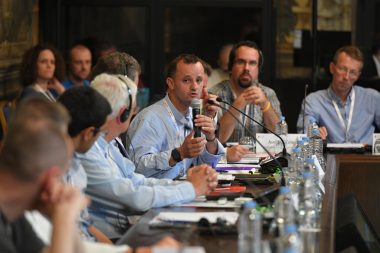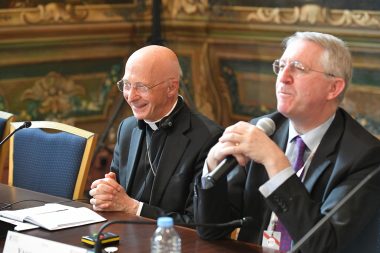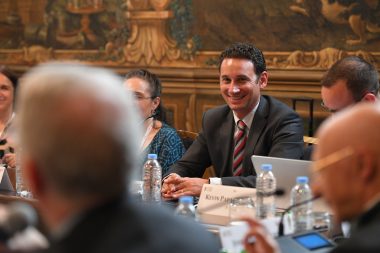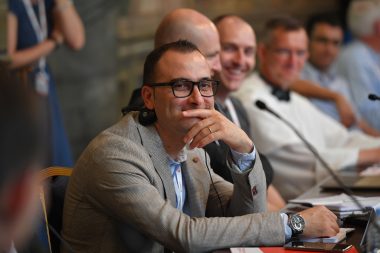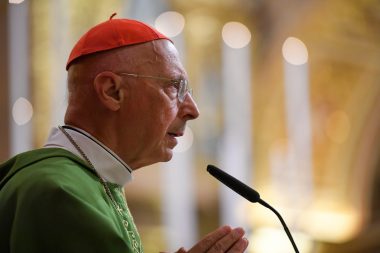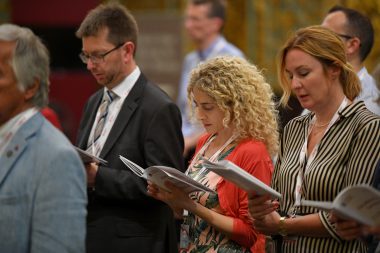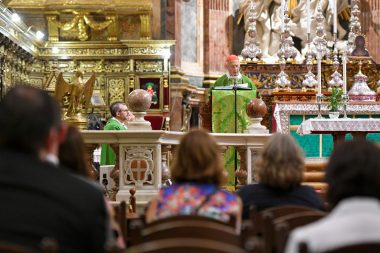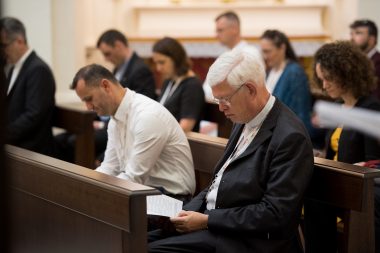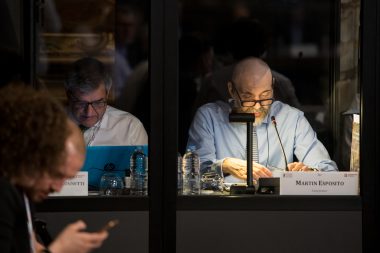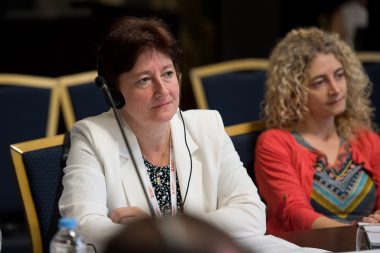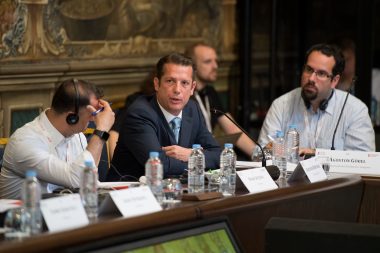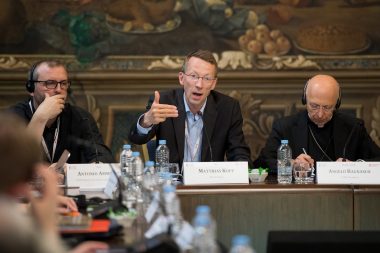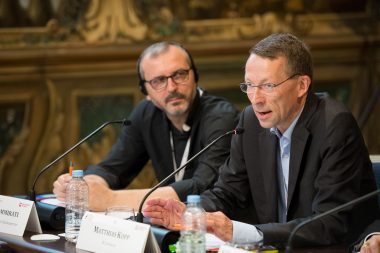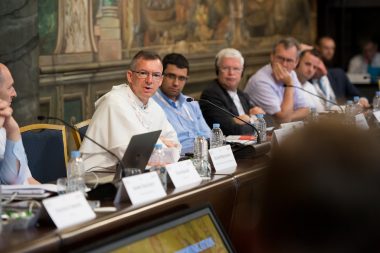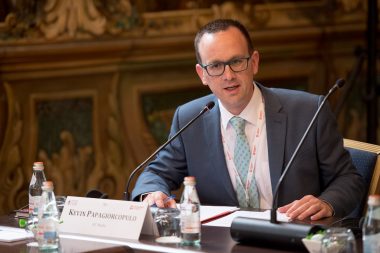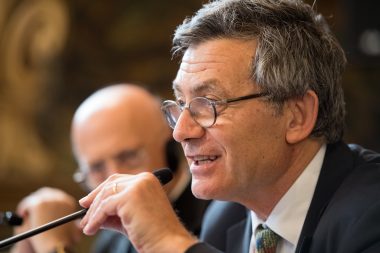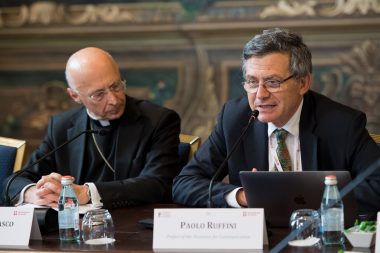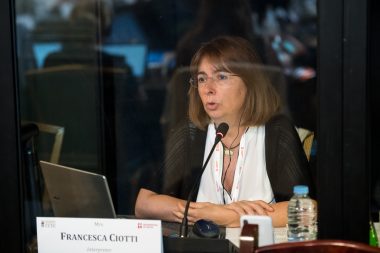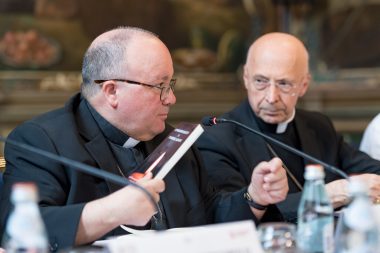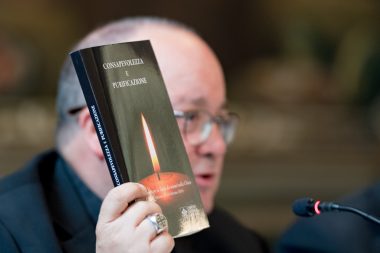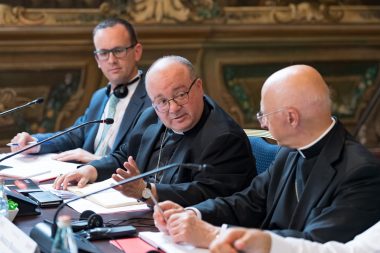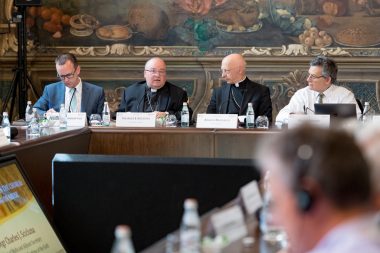How do we deal with and communicate a crisis situation? Are there standard strategies? What is the role of the Press Office? These are some of the questions that opened the annual meeting of the Press Officers and Spokespersons of the Episcopal Conferences of Europe.
53 participants, coming from 27 European countries, arrived in Malta from 17 to 19 June to discuss important issues related to communication and the media
The meeting, entitled “Communication in crisis situations”, kicked off in the Curia of the archdiocese of Malta with the greetings of the Auxiliary Bishop, H. E. Mgr. Joseph Galea-Curmi and the CCEE General Secretary, Fr. Martin Michalicek.
The work was opened by Card. Angelo Bagnasco, CCEE President, who in his speech focused on the challenges and opportunities offered by the new media and reminded participants that it is “necessary to live as protagonists; to know the languages and risks of the network, to give reasons, but above all to be a credible source that makes transparency and service to the Truth, always and in any case, one’s lifestyle and way of working”.
Prof. Yago De la Cierva, of the Pontifical University of the Holy Cross in Rome, gave the main report on how to deal with and communicate a crisis situation, on the role of the Press Office at the service of the Catholic Church and indicated the best practices of ecclesial communication in prevention, preparation and communication during critical periods.
The second day of the meeting opened with the sharing by some press officers of the Bishops’ Conferences of how they dealt with crisis situations linked to economic and transparency issues, sexual abuse of minors, refugee arrivals and relations with the institutions.
Archbishop Charles J. Scicluna, President of the Maltese Episcopal Conference and Assistant Secretary of the Congregation for the Doctrine of the Faith, recounted the Vatican summit on abuses, last February, on the protection of minors in the Church and explained the new procedural rules of the Church to combat sexual abuse established in the Apostolic Letter of Pope Francis Vos estis lux mundi.
Mgr. Scicluna also recalled the touching experiences of meeting with victims of sexual abuse by members of the clergy, stressing the suffering of those victims and the need to treat them with compassion and respect.
The meeting with Dr. Paolo Ruffini, Prefect of the Department for Communication of the Holy See, explained to what extent the Vatican’s communication reform process is taking place and, in dialogue with the participants, he has suggested tools and accepted proposals to work together to serve the mission of the Church.
The theme of communication in crisis situations is one of many in our work agendas. At the end of the meeting they emphasise the Press and Spokespersons, but at this time it is increasingly becoming the theme par excellence of our mission. However, we are aware that we must not let ourselves be crushed by paralysing worry and fear, but we must commit ourselves to make it a propitious moment for a renewed commitment.
Hence there are some words that have come up often in the meeting and that can form the basis of a future work:
• Trust
It is what gives the flavour to our work. Without trust, our mission makes no sense. Trust in receiving but also in giving.
• Change
It is not a boundary element, of context, of external landscape, as has perhaps been understood up to now. Change must take place in the very centre of humanity. To be profound, change must touch on previously unexplored subjective depths.
• Listen
Fundamental to communication, it is a source of true relationships, where authentic information is developed which is not simple transmission of news, but above all availability, enrichment, relationship.
• Compassion
We recall the words of the Holy Father to the Central American Bishops during the WYD in Panama: “Even in Catholic media, there is no compassion. There is the schism, the condemnation, the wickedness, the fury, the overvaluation of oneself, the denunciation of heresy … That compassion is not lost in our Church (…) The Church of Christ is the Church of compassion.”
• Service
Our work has a unique distinctive feature: being of service … “Love – Pope Francis often reminds us – is the concrete service we render to each other. Love is not words. It is works and service; a humble service “. Communicating is also an act of love given to the other; for this, it can only be a service.
• Truth
“Truth will set you free” is a path, a horizon towards which to strive. It is a responsibility that requires us to educate ourselves and to teach discernment, verification, and in-depth study.
With the awareness that crises are increasingly part of a common agenda and ask to be addressed together.
This is the link for the video summary of the meeting: https://youtu.be/ZHVTJK2XXNM
…and some photos.

